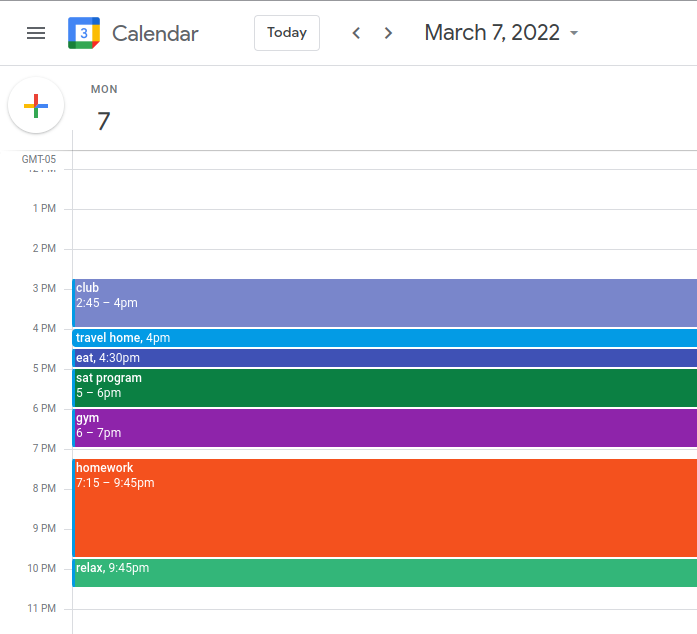Q: My schedule is really hectic, how can I incorporate gym sessions into my routine, balance multiple AP classes, and relax?
X replies: Prioritizing and planning are essential in dealing with a hectic schedule. Prioritizing events in your life is a get way to start things off; determine if certain events are important for your personal and intellectual growth. Here is where you find out if you’re overloading yourself with activities. I recommend writing down what activities or general events happening every week by day, then right next to it write things you would like to incorporate into your schedule (it’s best to write times as well!). Now you have a visual representation of the things in your life, you may see how much weight they are putting on. It’s okay to drop events if that’s what is best for you and your mental health, don’t feel bad or like you are letting someone down.
Next planning, now that you know activities you will proceed with, it’s time to create a general schedule for yourself. There are different apps and websites that can help you organize yourself like Notion, Google Calendar (which I personally recommend), and a physical planner. Everyone has different styles and preferences, so it may take some time to discover what planner system is right for you. I recommend Google Calendar, as you can schedule things down to the minute and there are different colors to color coordinate and set reminders. (see image).
If you avoid proper planning and continue with multiple activities, you’ll end up burning yourself out and it will become extremely difficult to continue your day-to-day life.
Q: What should we prioritize in high school?
Y Responds: In high school, striking a balance between school, job, and social life might seem unattainable. There never seems to be enough time in the day to get everything done, and the prospect of completing your to-do list might be daunting. Taking a few simple measures to arrange your tasks and simplify your life can help you manage your priorities. Try to prioritize the big picture in your mind. The first step in determining what you need to prioritize is to plan out your next few weeks or project. It will be simpler to conceive your to-do list and maintain a clear idea of what it will take to attain your goals if you keep the larger picture in mind. Try to prioritize your grades first. Grades, and more importantly, the actual learning that they represent, are crucial. Grades in high school are the first time in your academic career that they truly matter, and they may either open or close doors to possibilities that will affect the rest of your life. High school is also your first chance to show what you’re capable of outside of the classroom. Find something that you are passionate about and excel at, and attempt to achieve something noteworthy. If you have athletic talent, you have a very clear idea of what you should aim towards. Non-athletes will have to think a bit more creatively and think a little more, but there are plenty of options. In extracurricular activities, focus on quality rather than quantity. If you think you can rise to a leadership position (and perform well in it), go for it; it will set you up for the rest of your life. Most importantly don’t forget to prioritize your mental and physical health along with your studies, activities, and fun.
Q: How do I enhance my public speaking skills, even if it’s small classroom discussions?
Z Says:
Public speaking has to be one of the most nerve racking activities. Although it may come easily for some people, it’s a struggle for others. Many of us might be shy and turn to mumbling or even stuttering. The most important thing is to have confidence. It enhances your tone and brings a sense of professionalism. A loud voice is significant here, you want your audience to hear every word you say whether it’s a large crowd or a small group. Projecting your voice makes what you have to say more interesting and it grabs people’s attention. Someone who’ll mumble and speak softly will lose the audience’s attention. Another great thing to do is to engage with your crowd. Simple eye contact, hand gestures and even questions will create a connection between you and your audience. This will strengthen their understanding of what you say. Additionally, you want to keep a good pace. Speaking too fast will have the words go in one ear and out the other, it’ll be hard for people to grasp what you’re saying. It can also cause you to seem nervous and maybe even stutter. Speaking too slow will cause a drag on your lecture and create a sense of boredom. Having a good pace keeps the audience engaged and won’t wear you out. Lastly, it’s extremely important to enjoy the moment, if your audience sees the passion you have it will be uplifting and it’ll also be enjoyable for you! As long as you believe you can do it there’s nothing to worry about! Watch out for your posture too!


